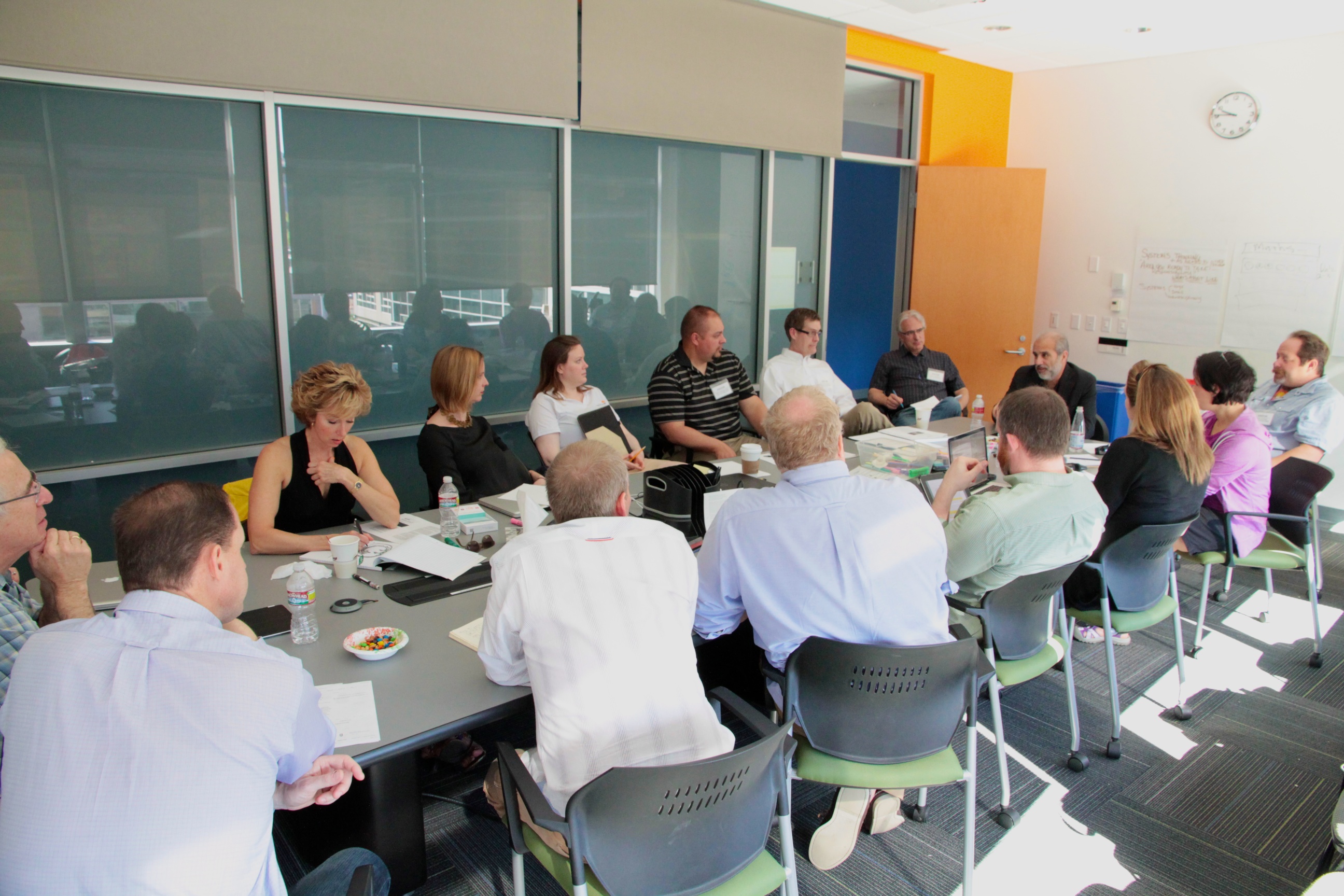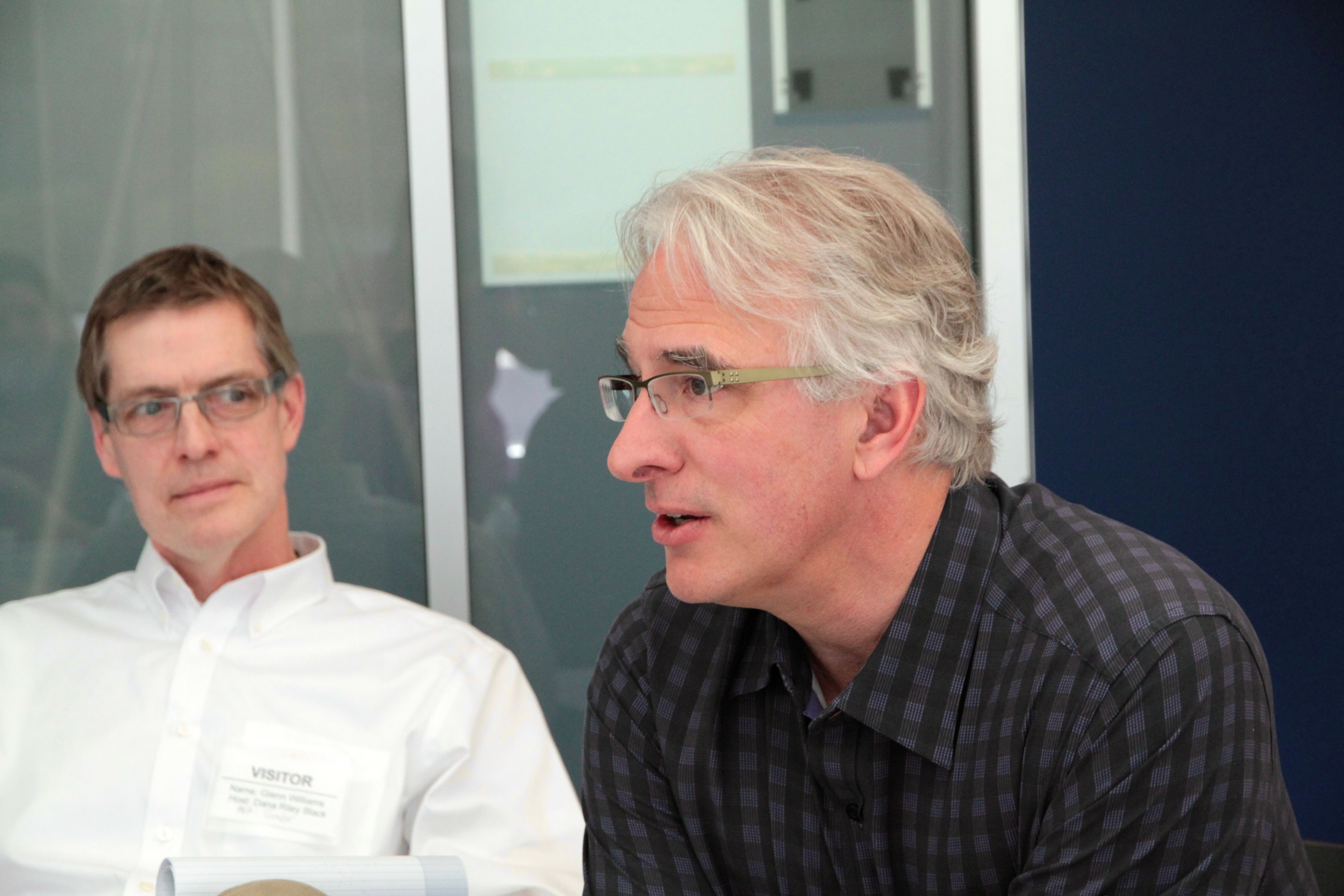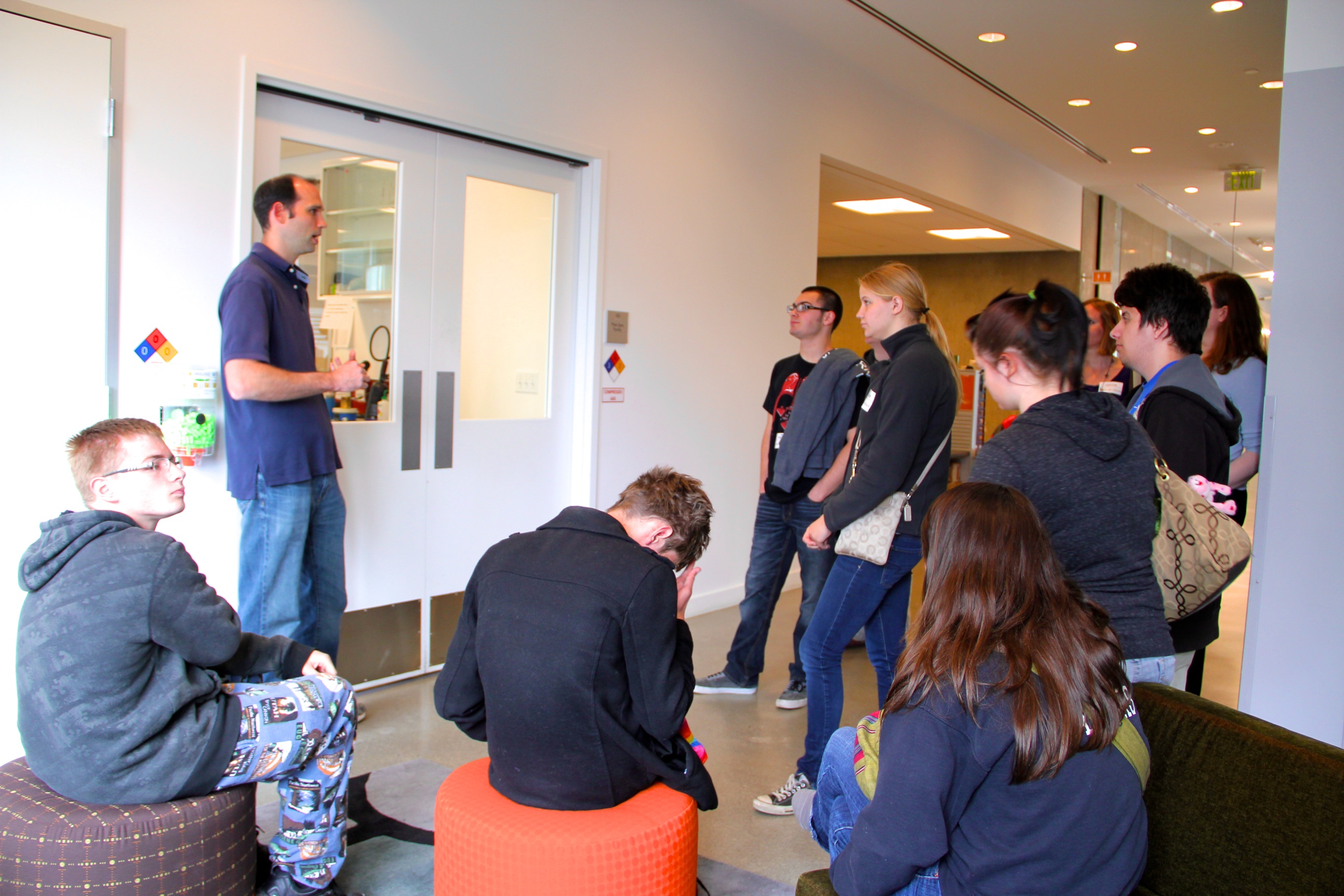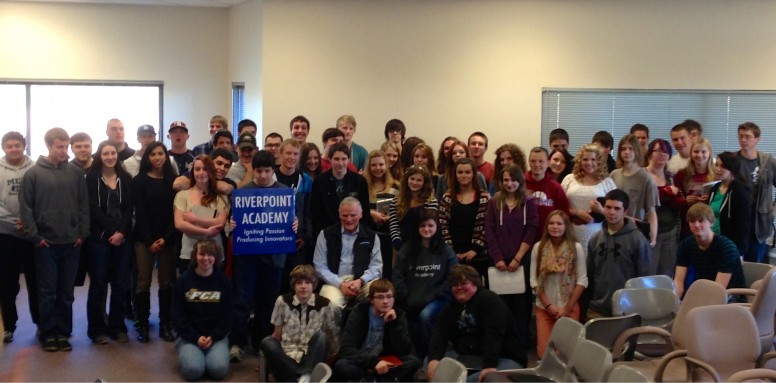ISB K-12 Science Education Team Helps ‘STEM’ School Develop Curriculum
 isbscience.org/news/2013/05/21/isb-k-12-science-education-team-helps-stem-school-develop-curriculum/
isbscience.org/news/2013/05/21/isb-k-12-science-education-team-helps-stem-school-develop-curriculum/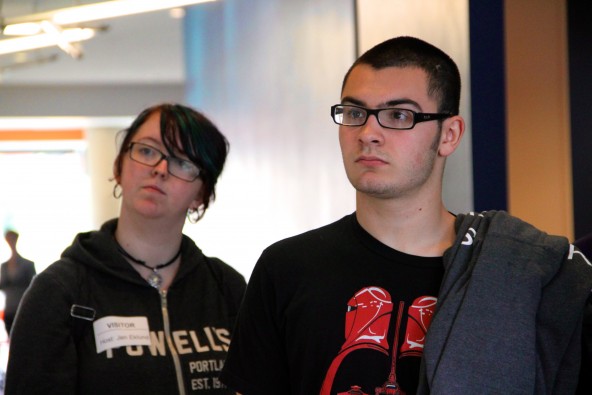
Riverpoint Academy in Spokane has been working with ISB’s K-12 science education team to develop curriculum that falls under “STEM” – science, technology, engineering and math. Riverpoint describes itself as a STEM school that also teaches arts, humanities and entrepreneurship. Some educators and administrators from Riverpoint and the Mead School District, as well as other community leaders visited ISB on May 3 and 4 to participate in a workshop to discuss how a signature project could be developed around personalized health. On May 21, students from Riverpoint Academy attended a panel featuring ISB scientists and then took a tour of the high-tech facilities. In April, Dr. Lee Hood, ISB president, traveled to Spokane to visit with students in the Mead District, including at Riverpoint Academy. Read the Spokesman Review’s story about the visit.



